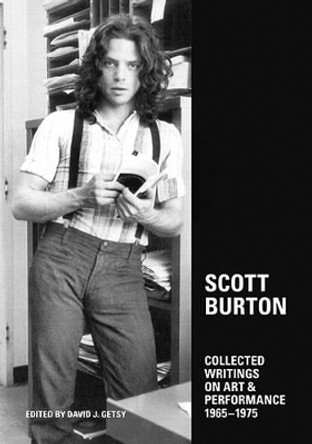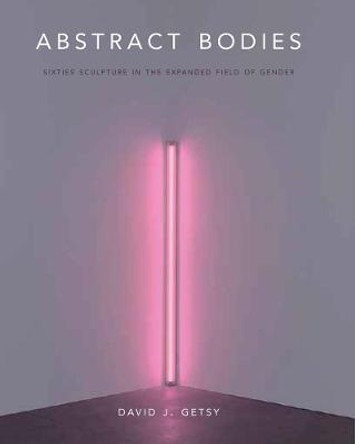Description
Scott Burton (1939-89) created performance art and sculpture that drew on queer experience and the sexual cultures that flourished in New York City in the 1970s. David J. Getsy argues that Burton looked to body language and queer behavior in public space-most importantly, street cruising-as foundations for rethinking the audiences and possibilities of art. This first book on the artist examines Burton's underacknowledged contributions to performance art and how he made queer life central in them. Extending his performances about cruising, sexual signaling, and power dynamics throughout the decade, Burton also came to create functional sculptures that covertly signaled queerness by hiding in plain sight as furniture waiting to be used.
With research drawing from multiple archives and numerous interviews, Getsy charts Burton's deep engagements with postminimalism, performance, feminism, behavioral psychology, design history, and queer culture. A restless and expansive artist, Burton transformed his commitment to gay liberation into a unique practice of performance, sculpture, and public art that aspired to be antielitist, embracing of differences, and open to all. Filled with stories of Burton's life in New York's art communities, Queer Behavior makes a case for Burton as one of the most significant out queer artists to emerge in the wake of the Stonewall uprising and offers rich accounts of queer art and performance art in the 1970s.
About the Author
David J. Getsy is the Eleanor Shea Professor of Art History at the University of Virginia. He is the author of Abstract Bodies: Sixties Sculpture in the Expanded Field of Gender; Rodin: Sex and the Making of Modern Sculpture; and Body Doubles: Sculpture in Britain, 1877-1905. His edited volumes include Scott Burton: Collected Writings on Art and Performance, 1965-1975 and Queer, an anthology of artists' writings.
Reviews
"Queer Behavior . . . seek[s] to inject art objects, sculptures, and performances that we might not necessarily consider as heavy with queer politics, with a queer aesthetic that moves beyond the surfaces of identity and identity politics." * Art History *
"Building on unprecedented research, Queer Behavior is the first substantial study of Scott Burton's anti-hierarchical, eclectic, desire-oriented art of the 1970s. Getsy has written a masterful work-rigorous, encyclopedic, sympathetic, and inspired-toward a loving recuperation of an artist whose work has at times been eclipsed in histories of art and performance. Argument-driven and lushly narrated, Getsy's writing hybridizes close analysis, critical biography, cultural history, and art historiography. The resulting book is unyieldingly good, at times breathtakingly so." -- Dominic Johnson, author of Unlimited Action: The Performance of Extremity in the 1970s
"Getsy's long-awaited, meticulously researched volume reads like a novel. I thoroughly enjoyed it as scholarship, history, 'deep gossip,' and prose. He has marshaled craft and discipline to produce an accessible, nuanced, and compelling account of Burton's unconventional and uniquely queer development. It's a tremendously important, insightful, and lucid contribution to the field. This book is necessary reading for performance art scholars and anybody-everybody-who needs a road map to navigate the constant challenges that lonely creatives face against the pressures of prejudice and conformity." -- Gregg Bordowitz, author of General Idea: Imagevirus, Glenn Ligon: Untitled I Am a Man, and Some Styles of Masculinity
"Getsy offers a rigorously researched and beautifully rendered account of Burton's performance practice, focusing on the lesser-known arc of Burton's work from the 1970's and, in the process, establishing its importance for both the art historical record and for histories of queer life. This is a substantial contribution to our knowledge of performance art, queer performance, and the performance scene of 1970's New York." -- Joshua Chambers-Letson, author of After the Party: A Manifesto for Queer of Color Life
Art historian and curator David Getsy has been observing how abstraction lends itself to often less obvious-though no less potent-ways of communicating aspects of queer experience and embodiment... Getsy asks the public and its institutions to grasp new alternatives that embrace multiplicity. "I'm interested in understanding that gender is as transformable as it is multiple, not limited to static options, and this implicates everything and everyone in a different way." * ArtNet *
Book Information
ISBN 9780226817064
Author David J. Getsy
Format Hardback
Page Count 384
Imprint University of Chicago Press
Publisher The University of Chicago Press
Weight(grams) 1193g
Dimensions(mm) 254mm * 178mm * 30mm





